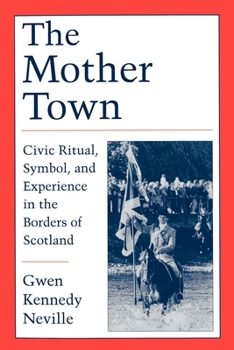The Mother Town: Civic Ritual, Symbol, and Experience in the Borders of Scotland
Select Format
Select Condition 
Book Overview
Horses with riders trailed by foot processionals, silver bands and pipe bands, furling medieval banners, lavish costumes, and singers and actors--the "Common Riding" is an elaborate, little-studied ritual phenomenon of the border towns of Scotland. In this vividly written and insightful analysis, Gwen Kennedy Neville uses this civic ceremony as a window for glimpsing the process of ritual, symbol, and experience in the development of the concept of "the town" in Western culture. Based on extensive fieldwork in the town of Selkirk, The Mother Town looks at the Common Riding in detail, uncovering pre-Reformation symbolism and pageantry--often medieval and Catholic--in a region that has been Protestant for over four hundred years. Neville shows how the ceremony is a model of the way civic ritual serves to construct a system of towns which gives rise to the modern world. Further, she contends that these civic rituals create a ceremonial setting in which the contradictions between tradition and modernity can be temporarily resolved and where past and present live side by side. Neville offers a provocative and illuminating study of how the ritual of Common Riding makes a dramatic statement about local strife, communal independence, and Protestantism in the towns of the Scottish Borders.
Format:Paperback
Language:English
ISBN:0195090322
ISBN13:9780195090321
Release Date:May 1994
Publisher:Oxford University Press
Length:176 Pages
Weight:0.58 lbs.
Dimensions:0.4" x 6.8" x 8.5"
Customer Reviews
0 rating





